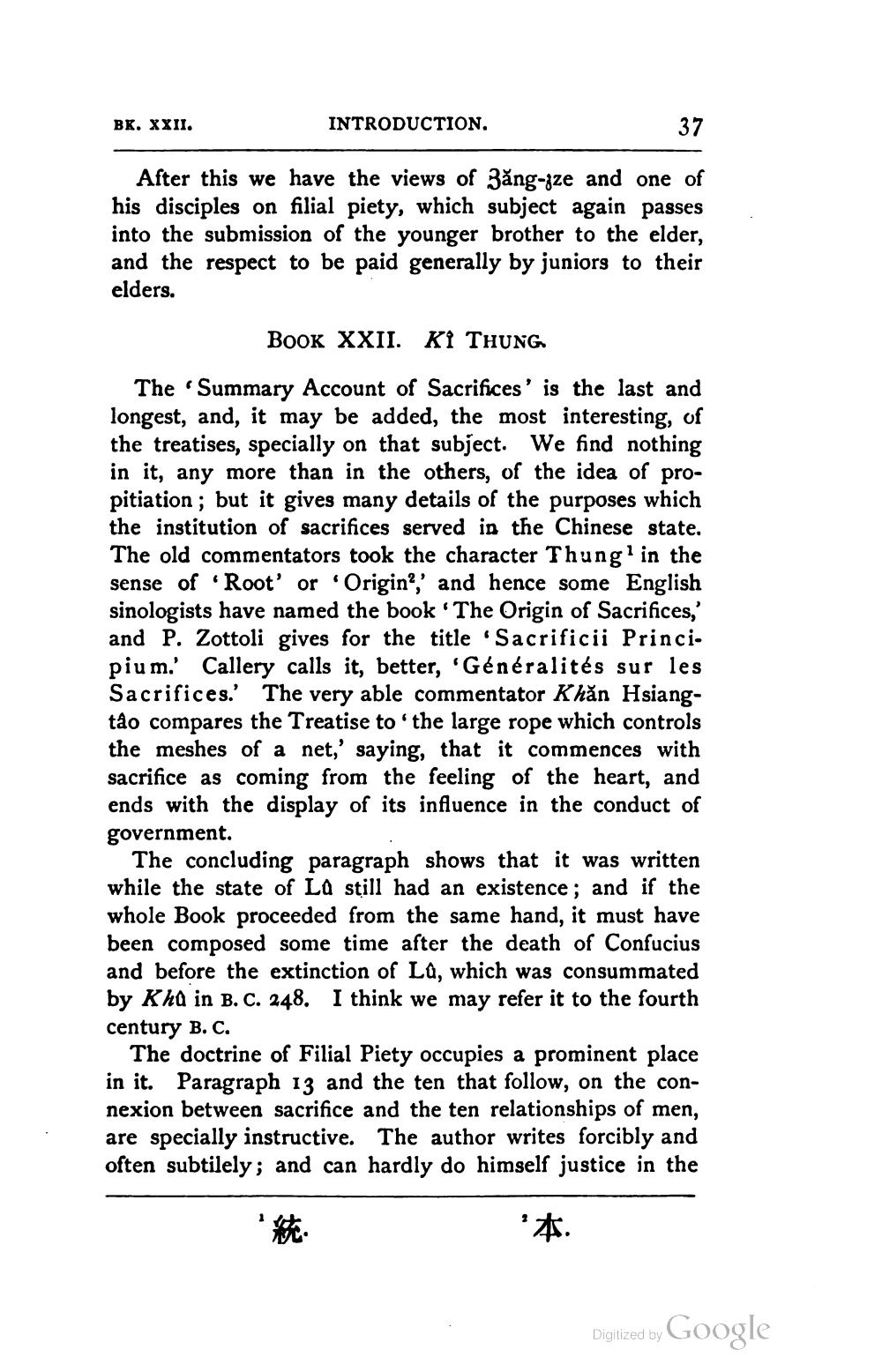________________
BK. XXII.
INTRODUCTION.
37
After this we have the views of 3ăng-xze and one of his disciples on filial piety, which subject again passes into the submission of the younger brother to the elder, and the respect to be paid generally by juniors to their elders.
BOOK XXII. KI THUNG
The Summary Account of Sacrifices' is the last and longest, and, it may be added, the most interesting, of the treatises, specially on that subject. We find nothing in it, any more than in the others, of the idea of propitiation; but it gives many details of the purposes which the institution of sacrifices served in the Chinese state. The old commentators took the character Thung? in the sense of Root' or 'Origin?,' and hence some English sinologists have named the book "The Origin of Sacrifices,' and P. Zottoli gives for the title Sacrificii Princi. pium.' Callery calls it, better, 'Généralités sur les Sacrifices. The very able commentator Khăn Hsiangtão compares the Treatise to the large rope which controls the meshes of a net,' saying, that it commences with sacrifice as coming from the feeling of the heart, and ends with the display of its influence in the conduct of government.
The concluding paragraph shows that it was written while the state of La still had an existence; and if the whole Book proceeded from the same hand, it must have been composed some time after the death of Confucius and before the extinction of Lů, which was consummated by Khd in B.C. 248. I think we may refer it to the fourth century B. C.
The doctrine of Filial Piety occupies a prominent place in it. Paragraph 13 and the ten that follow, on the connexion between sacrifice and the ten relationships of men, are specially instructive. The author writes forcibly and often subtilely; and can hardly do himself justice in the
#
Digitized by Google




